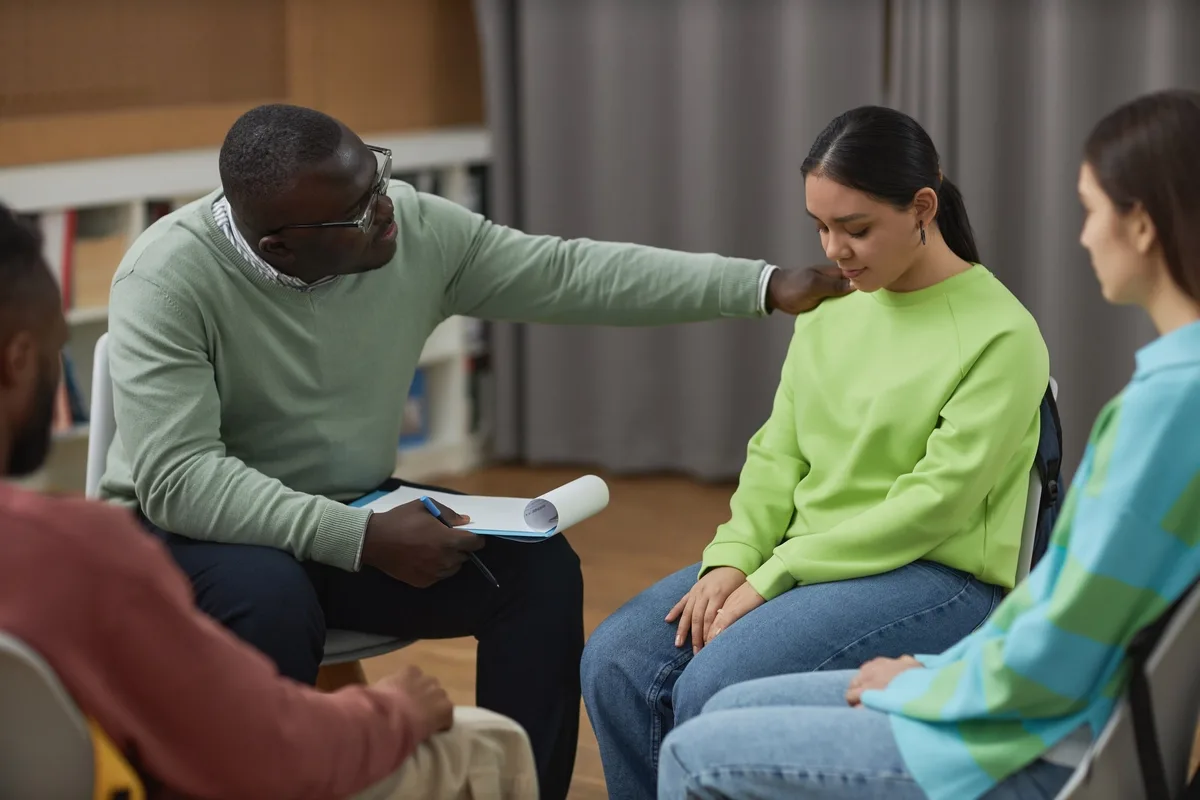24/7 Helpline:
(866) 899-221924/7 Helpline:
(866) 899-2219
Learn more about Group Therapy centers in New Orleans

Other Insurance Options

CareSource

Aetna

Evernorth

Kaiser Permanente

Optum

MVP Healthcare

Self-pay options

BlueCross

Anthem

UMR

BHS | Behavioral Health Systems

Sutter

Multiplan

PHCS Network

Holman Group

Magellan Health

Regence

Magellan
Beacon

WellCare Health Plans














